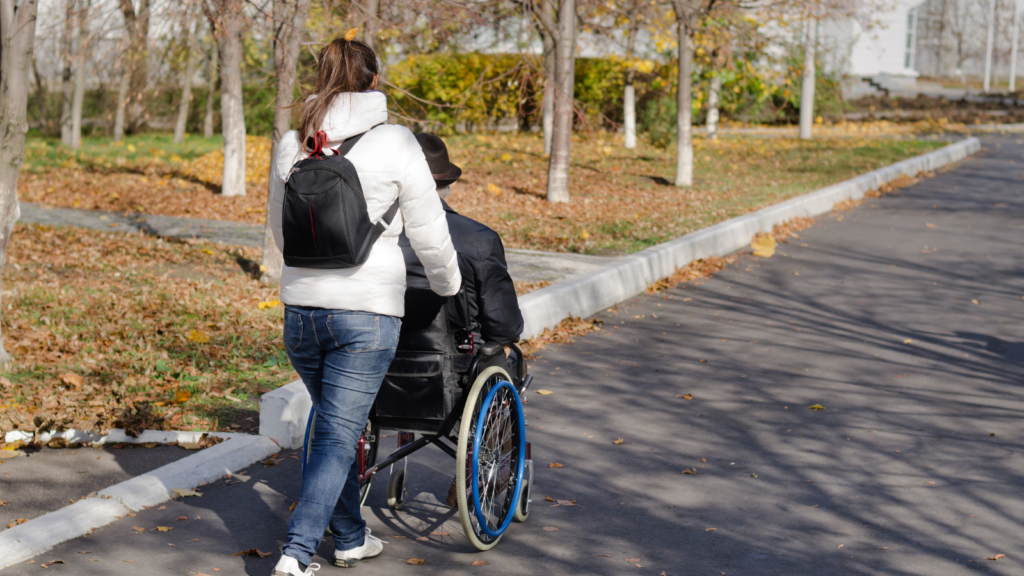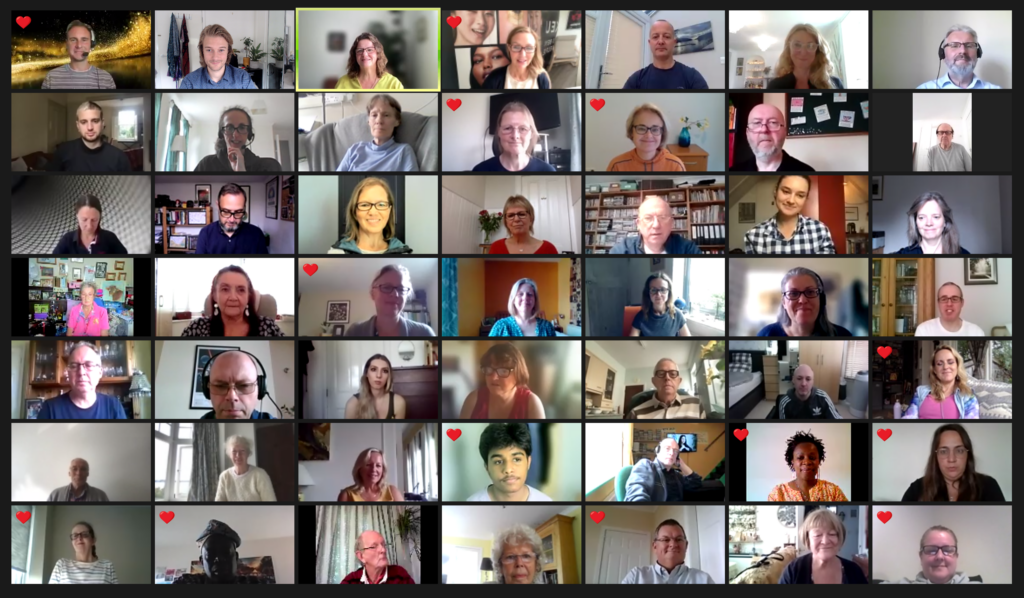8 people-powered ideas to improve the care sector
Britain needs more and better care. There aren’t enough people working in the sector. And we don’t value enough the staff we do have. Here are some practical steps – developed by people who work in care and draw on care – to recruit, train and keep more staff.

Engage Britain has brought together a group made up of people who draw on care, frontline care workers, care providers, commissioners and directors of adult social services, principal social workers and policy experts. They’ve developed a set of people-powered policies for the very first time. And some exciting ideas have emerged.
Here are the top eight ideas developed by the group:
- Align pay with the NHS
- A national pay review board
- A ‘green badge’ for care workers
- A professional body for people working in care
- A national training qualifications framework
- Clear career paths and progression
- Change immigration rules for care staff
- A long term 10-year plan
Find out the difference these idea could make to people’s lives.
See the full package of policy ideas to improve social care
Idea 1: Align pay with the NHS

People working in care should receive fair pay that is standardised nationally. This should include being paid for their whole shift, not just the hours they are on visits.
Where care workers or Personal Assistants (PAs) are doing equivalent work to NHS staff, they should be paid the same wages.
Banding (like NHS Agenda for Change) should be created to standardise pay across the sector and bring into alignment with equivalent NHS bands.
And each band should set out skills and training required to progress to the next band, with checks on compliance and competency.
Idea 2: A national pay review board

A new body, like the NHS Pay Review Body, should be set up to regularly review pay across care roles in the sector, as well as hourly rates for Personal Assistants.
It would undertake pay alignment with NHS work, set national pay scales against bands and agree key skills and competencies for caring roles.
The pay review board should involve people who work in caring roles and draw on care.
Idea 3: A ‘green badge’ for care workers (and other benefits)

A major overhaul of benefits is needed, ensuring care workers and PAs get proper sick pay, holiday pay and travel time. We need to show how much we value care workers as well as making their job easier.
Frontline carers say residential parking restrictions can significantly add to their costs and reduce the time they spend supporting people who draw on care in their own homes.
To tackle this, they could be provided with a ‘green badge’ – similar to the ‘blue badge’ – to enable people working in care to be exempt from residential parking restrictions so they can park for free when making home visits.
Some councils already exempt carers from residential parking restrictions but it is not nationwide. Doing so would help both care workers and the people they support day-to-day.
Learn more about the idea for a ‘Green Badge’ for care workers
Idea 4: A professional body for people working in care

Create a professional body to amplify voices working in care, similar to the Royal College of Nursing.
Its responsibilities would include creating a training standards and compliance framework, helping care workers know their rights, and developing supervision standards for care workers.
The professional body could also sit at the heart of a public awareness campaign to raise the profile of caring as a vocation and as a career.
This would need working alongside existing unions and national regulators, and in alliance with bodies representing unpaid carers and people drawing on care.
Joining costs would need to be low enough to be affordable to all care workers.
Idea 5: A national training and qualifications framework

Care workers need more and better ways to develop their careers, so more of them stay in the sector.
A national training and qualifications framework is needed, developed by the newly established professional body. It should include things like:
- A nationally recognised framework, curriculum and set of qualifications
- Standardised, accredited induction training, & refresher training
- Care Quality Commission inspections to monitor and enforce training provision
- Specialised and co-produced training for PAs
The new professional body would ensure all nations have the same requirements, without watering down existing regulations in Scotland or Wales.
This needs to be backed up by a national care training register to log training, and make sure care workers have met minimum requirements and can carry qualifications to different jobs.
Training should be co-produced with people working in and drawing on care, and appropriate to the roles in differing caring environments.
Idea 6: Clear career paths and pay progression

Clear career paths and opportunities for development and pay progression are needed, including via training, specialisation (eg dementia care) or experience.
Career progression routes need to be standardised and national, so that skills are properly rewarded and recognised.
Not everyone does well with formal learning and exams. So we also need to capture and properly reward experience.
For example, one care provider offers six-month and two-year pay increases across all care roles to recognise the skills developed and experience gained with time.
Idea 7: Change immigration rules for care staff

Change immigration rules to make it easier for both skilled care staff and new care staff to enter the UK.
Training in care work should be recognised for student visa applications.
The bureaucracy around arranging visas for care workers and PAs should be simplified. For example, enabling providers to request the number of licenses they need, without having named people for the licenses.
The minimum income level for getting the right to stay and work here should be lowered. So it reflects the lowest wage on the care progression structure (and real living wages).
Idea 8: A long term 10 year plan

The changes needed to reform social care will only happen if government is held accountable to a published 10 year plan like the NHS Long Term Plan.
It should include a staffing plan, an understanding of the cost of care and investment needed, and mechanisms for paying for it so central government covers the shortfalls between funding and delivery of care, including fair pay and conditions.
There’s also a real need for more stable, longer-term funding from Local Authorities to providers. This would allow for more flexible approaches to care.
The difference these policy ideas could make
We chatted with four participants who had been part of the Social Care Change Group.
And asked them: What difference would implementing these policies make to people’s lives?

Engage Britain has been asking people for their experiences and views of the NHS and care. Find out how they settled on the key problems before developing detailed solutions… read more

How can we help solve the biggest challenge facing the country? Here’s a whistle-stop tour of our approach to make change happen… read more

We’re a fully independent charity that gives people a say on what matters most to them. We can make our…read more